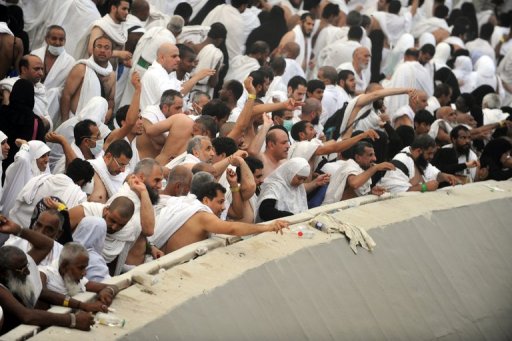Infusing a socio-political theme into a satirical comedy is a feat many filmgoers thought comedy star Ahmed Eid is capable of. After all, his starring roles in “Film Thakafi (Educational Film) and “Lailat Seqout Baghdad (The Night Baghdad Fell) cemented his reputation as one of Egypt’s few film stars who could juggle between comedy and politics with relative ease.
But since 2005, his films, including his latest “Ramy El E’tesamy (Protesting Ramy), have proven that his earlier stroke of genius was merely the result of his work with director Mohamed Amin, the sole mastermind behind these hits.
Eid, it seems, has joined a league of comedians and film stars who only play the title characters in films that mainly focus on the lead actor at the expense of the plot.
“Ramy, Eid’s third film since “Baghdad, promised much more than it delivered. As the title suggests, the film focuses on the trend of protests and Facebook activism that have recently flooded the country. Yet, instead of any substantial analysis or witty insights, the film turns out to be nothing more than a shallow depiction of these trends, wrapped in a comedy that largely misses the mark.
The film employs the conventional stereotypes and stretches them to an extreme, to the point where they deviate off the comedy track that justifies their use in the first place. What starts out as a juxtaposition of rich and poor must have seemed humorous and insightful on paper, but on the screen, the comparisons are too superficial, peppered with silly efforts to make them look intelligent.
Ramy is a rich, spoilt hashish-smoking young man fixated on creating groups on Facebook and competing with his equally stoned friends over who would attract more members.
In his attempts to become a musician – he is obsessed with Yara (Lana Saied) who only goes for “stars and is currently in a relationship with a singer, played by real life singer Haitham Saied – he tries his hand on the most obvious choice: the guitar. At one point, he tries playing the national anthem but fails. So he creates a group that calls for changing the national anthem.
In no time, the group attracts thousands of members and Ramy becomes an instant Facebook sensation. He’s invited to a TV talk show and in a heated argument with the prime minister (played by Ahmed Rateb), he threatens to organize a sit-in if the government doesn’t respond to his demands.
During the same spurt of artificial enthusiasm that led to the popularity of his Facebook group, hundreds show up to the sit-in in front of the prime minister’s office. They are mainly rich kids dying to find a purpose for their existence without losing the superficial, high maintenance lifestyle they’ve grown accustomed to.
The sit-in is set up to accommodate the rich kids, offering gourmet food, including sushi and beer, recreational activities and a gym. The site turns into a popular hangout, a place where teenagers can spend the night, without the objection of their parents (they are striking for a reason, remember).
Of course Yara becomes attracted to Ramy’s newfound fame and popularity. Ramy takes the helm of the sit-in, taking charge of the organization, making sure everyone is happy and meeting corporate sponsors for the strike.
Things quickly get out of hand – Ramy’s hand to be exact – who plays along to keep Yara with him, but fails to stay in control.
On the other side of the city, poverty-stricken residents of a shantytown, who just got evicted from their makeshift homes, find no alternative but to join the strike, seeing in it an opportunity to find food and shelter.
And since the rich kids don’t like to mix with the lower classes, they surround themselves with barbed wire and leave the poorer masses to set up their own strike. Like their rich counterparts, the shantytown evictees set up their own version of a popular sit in, with liver sandwich stalls for catering.
Enter Fawzeya (Ayten Amer) and Kaka (Rico), who were about to get married before their eviction. And then the film changes focus to portray the exploitation of the working class by the rich in a plotline involving Ramy – who has a fetish for all things baladi and shaabi – paying Ayten and her family for petty jobs so he could just ogle her curves and, if he’s lucky, take advantage of her.
Surprisingly, the prime minister idly watches the unfolding events and expresses discontent. Security intervention is ruled out from the start due to the continuous media attention – as if it has ever stopped the government before. But as the sit-in expands, attracting more people from different walks of life – the prime minister almost faints when he sees that Islamists have set up a third camp – the government tries to communicate with the protestors and find a solution.
Sadly what seemed like a great idea for a project, employing the “Baghdad -like approach that veers towards black comedy, fails to translate on screen. The film, directed by Samy Rafe’ and written by Loay El Sayed, misses the point when they decided to throw surrealist characters in a supposedly hilarious, unrealistic plot to explore a widely-discussed issue that requires a different treatment. And even the side jokes were rarely funny.
The film attracted criticism for ridiculing the new wave of political and social activism led by a tech-savvy generation. It reduced the leaders and followers of this inspiring trend to sheer airheads who advocate nothing but their own selfish interests.
Thus Ramy appears lost between one attempt to represent real life and another to mock it, and consequently fails to do both.
